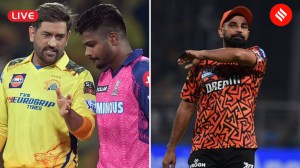In Clint Eastwood’s shadow
Write about what you know” is the advice creative writing teachers used to give first-time writers. One wishes someone had given it a l...

Write about what you know” is the advice creative writing teachers used to give first-time writers. One wishes someone had given it a little earlier to Francis Xavier Toole, who died in 2002 at age 72 after just one book. What Toole knew best was a world peopled by, in the words of fictional boxing trainer Earl Jeter (“But all my friends call me Jeet”), “White and black folks, Spanish of all kinds, Chinamen and Arabs. Mens and womens… Nice people. Old Irish dudes with red noses.”
Published in 2000 under the title Rope Burns — what you get from spending too much time leaning against the ropes in a boxing ring — Toole’s book has been republished and renamed for its best story, the one that provided the basis for Clint Eastwood’s Million Dollar Baby. There aren’t many people left who can testify to the authenticity of Toole’s stories. For better or worse (and judging from the fate of most of Toole’s characters, it’s hard not to say better), the world of professional boxing is rapidly disappearing in this country. Toole, a former boxer, trainer and corner man — the latter is someone close enough to the boxer to jump into the ring between rounds with a bucket, a sponge and encouragement — wrote what amounts to a series of elegies for people like Adolph Dashiki Jones, Cuba Kid Babaloo, Henry “Puddin’” Pye, Fightin’ Maggie Fitzgerald, Con Flutey, Frankie Dunn and Joseph Mary “Mac” McGee…
In Million Dollar Baby, a wildly improbable and utterly fascinating story of the rise and fall of a female boxer, Toole’s powers were at their peak. He balanced cool narrative with wild Irish sentimentalism in a fable told with gritty realism. From men and women whose lives are usually mined for melodrama, Toole found tragedy and heroism. Hemingway, who saw writing as fighting, believed that by the end of his life he had become smart and tricky enough to hold Stendhal to a draw. Toole knew from the inside what Hemingway saw from the folding chairs, and when it came to the boxing story, earned a split decision over him. It was a hell of a debut for a kid who had just turned pro.
Excerpted from an article by Allen Barra at Salon.com



- 01
- 02
- 03
- 04
- 05



























